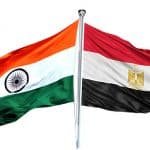In India, four types of calendars are followed:
- Vikram Samvat (Hindu lunar calendar)
- Saka Samvat (Hindu Solar calendar)
- Hijri Calendar (Islamic lunar calendar)
- Gregorian Calendar (Scientific solar calendar)- followed universally
Vikram Samvat:
- Dates back to 57 B.C.
- Introduced by King Vikramaditya to mark his victory over the Saka rulers.
- 57 B.C. is the zero year.
- It is a lunar calendar as it is based on the movement of the moon.
- Every year is divided into 12 months and each month is divided into two phases.
- The bright half is called the Shuklapaksha (15 days). It starts with the new moon and ends with a full moon.
- The dark half is called the Krishnapaksha (15 days). It starts with the full moon and ends with a new moon.
- The month begins with the dark half.
- There are 354 days in a year.
- Hence every third and fifth year in a cycle of five years has 13 months (the 13th month is called Adhik Mass).
Also Read: Chemistry Syllabus: Indian Forest Service
Saka Samvat:
- The zero year of Saka Samvat is 78 A.D.
- It was started by Saka rulers to mark their victory over Kushanas.
- It is a solar calendar.
- It was adopted by the Government of India as the official calendar in the year 1957.
- Every year has 365 days.
The names of the months in Saka Calendar are:
- Chhaitra (March 21 – April 20)
- Vaishakha (April 21-May 21)
- Jyeshtha (May 22-June 21)
- Ashadha (June 22- July 22)
- Shravana (July 23-August 22)
- Bhaadra (August 22-September 22)
- Ashwin (September 23-October 22)
- Kartika (October 23-November 21)
- Agrahayana (November 22-December 21)
- Pausha (December 22-January 20)
- Magha (January 21- February 19) and
- Phalguna (February 20-March 20/21)
Also Read: MidDay Meal and Aadhar: How ethical is the linkage? (Hindi)
Hijri calendar:
- It is a lunar calendar.
- The zero year is 622 A.D.
- It was initially started and followed in Saudi Arabia.
- Every year has 12 months and 354 days.
- The first month is called Muharram.
- Ninth month is called Ramzaan. During this month, Muslims observe a fast for the purification of souls. The morning breakfast is called Shehri and evening food is called Iftar.
- The 12 months of the calendar are:
- Muharram
- Safar
- Rabi’ al-awwal (Rabi’ I)
- Rabi’ al-thani (Rabi’ II)
- Jumada al-awwal (Jumada I)
- Jumada al-thani (Jumada II)
- Rajab
- Sha’ban
- Ramadan
- Shawwal
- Dhu al-Qi’dah
- Dhu al-Hijjah
Gregorian calendar:
- Scientific calendar.
- Every year has 364.25 days.
- It is a solar calendar and followed universally.
Note: Want to share this story with someone? Just click on the icons below.











